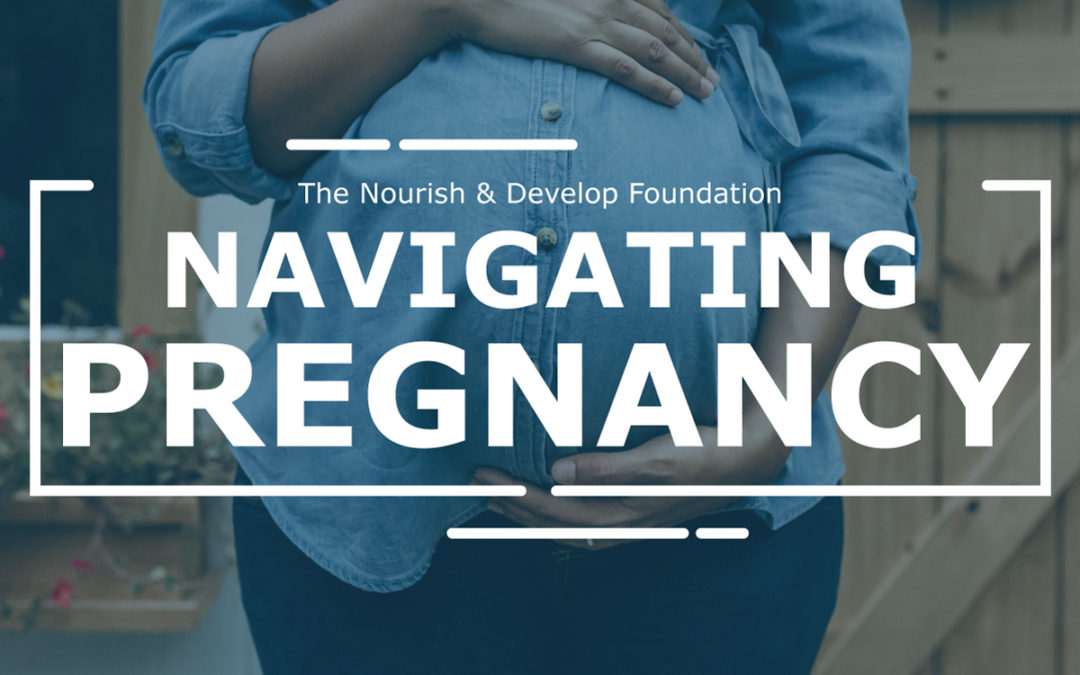Though pregnancy itself lasts approximately 9 months,
there is so much to be covered throughout that duration, including the time leading up to it and following birth. No two pregnancies are the same, but the experience is filled with strong emotions, bodily changes, having to advocate for your health, needing additional support, and financial forethought to name a few events. Personally speaking, I thought I had a good idea of what to expect, but there was a lot I was not prepared for until I entered the journey myself. So, if you are planning to become pregnant, are currently pregnant, or want to better understand what pregnancy entails, we hope this can highlight and briefly explain some of the biggest transitions that take place.
acknowledging emotions
Common Misconception: Being pregnant is a happy, joyous time.
Pregnancy is a huge responsibility that requires sacrifice. Among the cheerful moments, there may be periods of unpleasant feelings, like sadness and guilt. Perhaps mourning life as you know it and subsequently blaming yourself for doing so.
“I didn’t really want to see people, do anything. I felt unenthusiastic about being pregnant, didn’t really want to prepare for it, wasn’t very quick at buying baby clothes or to decorate nurseries or doing anything like that. I just wanted to ignore it and whenever I did think about it, I just felt really anxious about it all.” Source
Fluctuating hormones will also contribute to a rollercoaster of emotions, so being kind to yourself (you are growing a whole human after all!) and engaging in self-care is vital to managing your well-being at this time. Taking breaks, doing something you enjoy, and using your mistakes to propel you forward are ways you can treat yourself right.
embracing physical changes
Common Misconception: Your stomach gets bigger and you feel tired.
Yes, your stomach does get bigger and you do feel tired! But you also may experience heartburn and leg cramps and nausea and hemorrhoids and hair growth and and and…
Unfortunately, there can be many uncomfortable symptoms that take place. There are certain changes to watch out for like fevers, constant headaches, severe abdominal pain, etc. that require a check in with a health care professional and possible medical intervention, but for the normal transitions of fatigue, backaches, increased appetite, and tenderness, there are actions you can take to cope, including:
- Resting when you are tired
- Wearing comfortable, supportive shoes
- Avoiding tight-fitting, restrictive clothing
- Exercising, like talking walks, swimming, or prenatal yoga (as long as it is appropriate for your trimester, fitness level, and your situation)
- Incorporating nutritious foods into your diet
- Accepting help from others
- Using extra pillows and blankets to increase your comfort
- Practice breathing techniques
- Find ways to connect with your baby (putting your hands on your stomach, reading to them, talking to them)
Talk through your symptoms with your care provider or local health line if you want to learn more.
navigating health care
Common Misconception: Once you tell your doctor you are expecting, all your appointments are taken care of.
While you should first and foremost inform your doctor of your pregnancy, it will be you who is responsible for doing most of the legwork in terms of connecting with healthcare providers, booking appointments, ensuring documentation is accounted for, etc.
With the pandemic, there are additional limits to health care including having someone accompany you to ultrasounds, attending in-person appointments, and experiencing long waits for phone calls. It can be extremely challenging and frustrating at times so having a support system is essential to share your situation with (we’ll touch on that next) but it is in your best interest to start learning to be your own advocate.
What does that look like? A lot of self-education. Learning about your options such as selecting an OB-GYN or Midwife as your primary caregiver in pregnancy, creating some sort of birth plan, deciding which clinics/hospitals you want to go to, etc. These choices can be very personal so if you have the opportunity to make such decisions, it may offer a sense of comfort throughout the process. Some things do remain outside of our control and in that case, practice acceptance. Doing so will allow you to shift your focus from feeling angry to finding motivation to do what you can to prioritize the needs of yourself and baby. For instance, if you envisioned a natural birth but require a cesarean section, acknowledge that is the path towards a safer delivery.
building support
Common Misconception: Your support network will stay the same.
This isn’t a guarantee, and you are going to need all the support you can get. You may lose friends, and you may gain new connections. Women who have strong support systems fair better at adjusting to the stressors of pregnancy and early motherhood compared to those with low levels of social support which is a risk factor for Postpartum Depression and Intimate Partner Violence.
It is important to be able to depend on people who support your physical, emotional, and social well-being, as it fosters a sense safety and belongingness. They can come in the form of family, friends, neighbours, colleagues, spiritual advisors, peers, online communities, a midwife or doula, a partner, etc.
Types of social support can consist of:
Emotional: exchange of empathy, trust, and caring
Example: Giving your friend a hug and listening to them vent
Instrumental: exchange of services or tangible goods
Example: Watching the baby for your friend so they can take a bath
Informational: exchange advice and feedback
Example: Sharing which tools have helped you as a new parent
Appraisal: exchange of information which provides perspective of self
Example: Telling your friend they are doing a great job and reminding them of all the progress they have made
setting up financials
Common Misconception: You can wait until the baby arrives to crunch numbers.
While you can wait until the baby comes, it may not be ideal because 1. you may run into unanticipated costs and 2. your baby’s pressing needs will take precedence over financial planning.
The Financial Consumer Agency of Canada has put together a helpful financial checklist to help prepare for the arrival of a baby. It recommends steps such as securing childcare (wait lists can be up to months or years long), saving for child-related costs such as strollers or cribs (you may want to create a registry so family and friends can get what will be useful to you), and reviewing any employee benefits (health plans, top-ups).
Most people who were working for someone else while they or their partner was pregnant are eligible for Pregnancy and Parental Leave or Maternity Leave and Parental Benefits and if you are self-employed, you may be able to apply for EI special benefits.
Examples of Employment Insurance scenarios when pregnant or on leave:
The checklist also includes what should be completed once the baby arrives, including applying for a birth certificate, Social Insurance Number, and updating tax forms with your employer.
Opening a Registered Education Savings Plan can help set up your child for future success. It is a special savings account to save for their post-secondary education. There are grants available to help this fund grow and depending on your income, you may qualify for the Canada Learning Bond, where the government will provide up to $2,000 for each child.
Helpful Resources:
Baby on the Way Prenatal Services Durham
Your Guide to a Healthy Pregnancy
Images Source:



